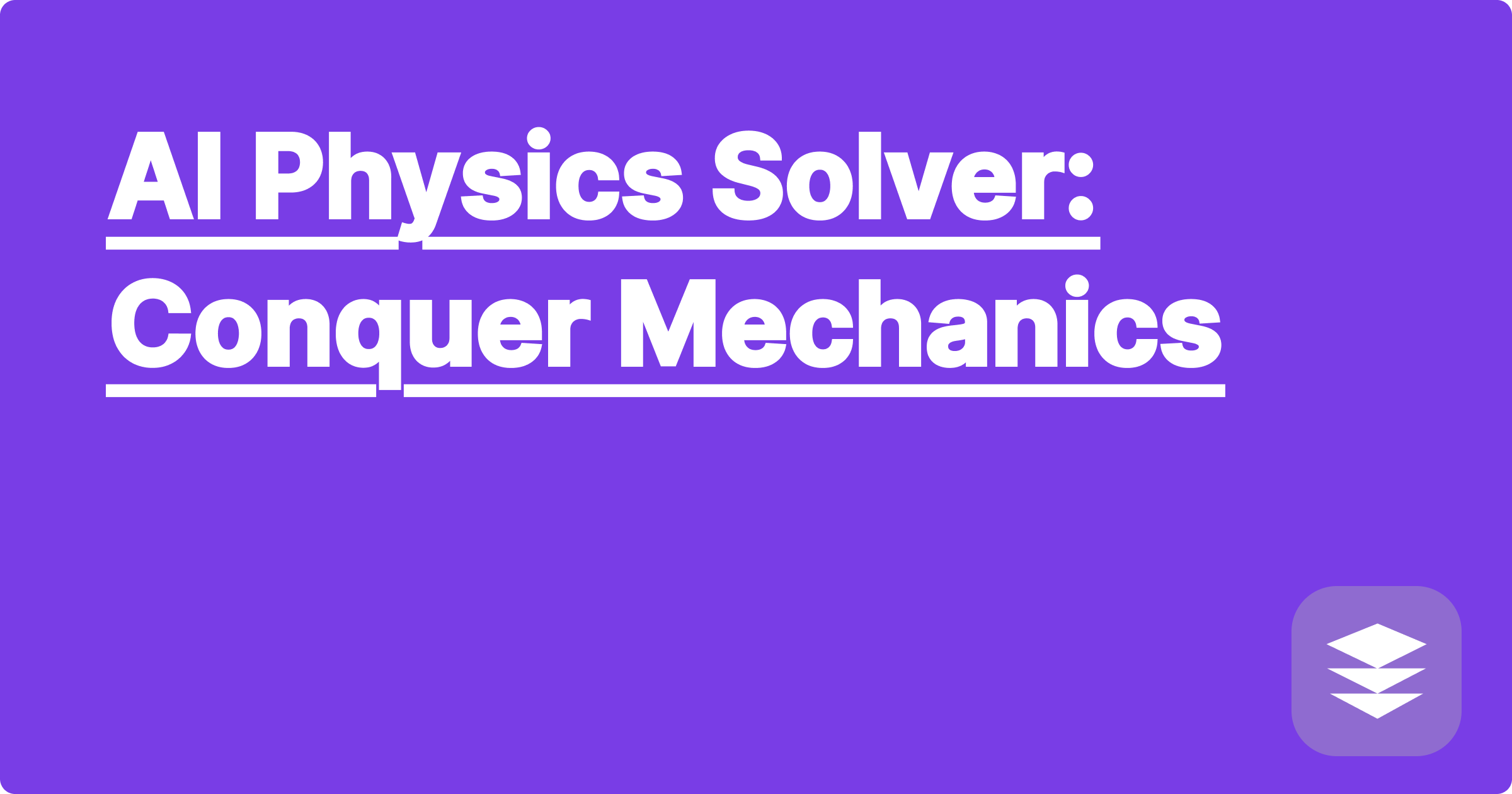
Are you a STEM student drowning in complex physics problems? Do endless equations and tricky mechanics concepts make you want to throw your textbook across the room? You're not alone. Many STEM students struggle with the demanding workload, especially in challenging subjects like physics. But what if there was a way to not only conquer these challenges but also gain a deeper understanding of the material? Artificial intelligence (AI) is revolutionizing how we approach learning and research, offering powerful tools to help you excel in your studies and unlock your full academic potential. This blog post will explore how AI, specifically focusing on lesser-known tools and the concept of a Generalized Personal AI (GPAI) partner, can become your secret weapon for mastering mechanics and achieving academic success.
Imagine having a personalized AI assistant available 24/7, ready to help you tackle any academic hurdle. This isn't science fiction; it's the potential of GPAI. Think of GPAI as your ultimate study buddy, research assistant, and time management guru all rolled into one. By combining the power of various AI tools and tailoring them to your specific needs, GPAI can transform your learning experience. We'll delve into the practical applications of GPAI and how it can revolutionize your approach to STEM subjects, particularly physics.
Mechanics, a foundational branch of physics, often presents a significant hurdle for students. Grasping concepts like kinematics, dynamics, and energy conservation requires not just memorizing formulas but also understanding their underlying principles and applying them to diverse problem scenarios. Traditional learning methods often fall short in providing personalized support and addressing individual learning gaps. Furthermore, the sheer volume of information and the complexity of the problems can be overwhelming, leading to frustration and decreased motivation. This is where AI steps in, offering a personalized and efficient approach to learning and problem-solving.
AI tools can revolutionize your approach to mechanics problem-solving. Wolfram Alpha, for instance, is an incredible computational knowledge engine that goes beyond simple calculations. It can solve complex equations, provide step-by-step solutions, and even generate visualizations to aid understanding. While ChatGPT is well-known for its text generation capabilities, it can also be a valuable tool for understanding the conceptual underpinnings of physics problems. By prompting it with questions about specific concepts or asking it to explain different approaches to a problem, you can gain a deeper understanding of the material. Combining these tools with other specialized AI applications creates a powerful learning ecosystem.
Let's walk through how you can integrate these tools into your workflow. First, identify the specific mechanics problem you're struggling with. Next, break down the problem into smaller, manageable components. Use Wolfram Alpha to handle complex calculations and explore different solution paths. If you're struggling with the conceptual understanding, turn to ChatGPT. Ask it to explain the relevant concepts or provide alternative explanations. By iteratively using these tools, you can move from a state of confusion to a clear understanding of the problem and its solution. This iterative process allows for a deeper engagement with the material and fosters a more intuitive understanding of the underlying physics principles.
Consider a classic projectile motion problem. You're given the initial velocity and angle of projection and asked to find the maximum height and range. Instead of blindly plugging numbers into formulas, use Wolfram Alpha to visualize the trajectory and understand the relationship between the variables. You can input the equations of motion directly into Wolfram Alpha, and it will not only calculate the results but also provide graphs and other visual representations of the projectile's path. Then, use ChatGPT to understand the underlying physics principles governing projectile motion. Ask it questions like, "Why does the horizontal velocity remain constant?" or "How does air resistance affect the trajectory?" This combined approach will solidify your understanding of the concepts and empower you to tackle similar problems with confidence.
To truly maximize your learning potential, consider developing your GPAI. This involves integrating several AI tools into a personalized learning system. Beyond Wolfram Alpha and ChatGPT, explore lesser-known tools like Phywiz, an AI-powered physics problem solver, or Algodoo, a physics simulation environment. Phywiz can provide step-by-step solutions to a wide range of physics problems, while Algodoo allows you to create and run interactive simulations to visualize complex physical phenomena. These tools, combined with effective time management strategies, can significantly enhance your learning efficiency and boost your academic performance. For example, schedule dedicated "AI-assisted learning" sessions where you focus on tackling challenging problems with the help of your chosen AI tools. This structured approach will help you stay organized and make the most of your study time.
By incorporating these AI-powered tools and strategies into your workflow, you can transform your learning experience. Instead of passively absorbing information, you become an active participant in the learning process. This active engagement leads to a deeper understanding of the material and improved problem-solving skills. Furthermore, by automating tedious tasks and providing personalized support, AI frees up valuable time and allows you to focus on the aspects of learning that require human intuition and creativity.
Start exploring these AI tools today. Experiment with different combinations and find what works best for you. Don't be afraid to ask questions and push the boundaries of what these tools can do. The future of learning is here, and AI is your key to unlocking your full academic potential. Embrace the power of AI and embark on a journey of personalized learning and academic success. Remember, these tools are not just about getting the right answers; they're about understanding the "why" behind the answers and developing a deep, intuitive grasp of the subject matter.
AI Physics Solver: Conquer Mechanics
AI for Circuits: Simulate & Design
AI Calculus Tutor: Master Integrals
AI Bio Data Analyzer: Research Made Easy
AI Robotics: Build Smart Robots
AI Stats Helper: Ace Your Exams
AI Math Solver: Problem Solving
AI Data Science: Analyze Big Data